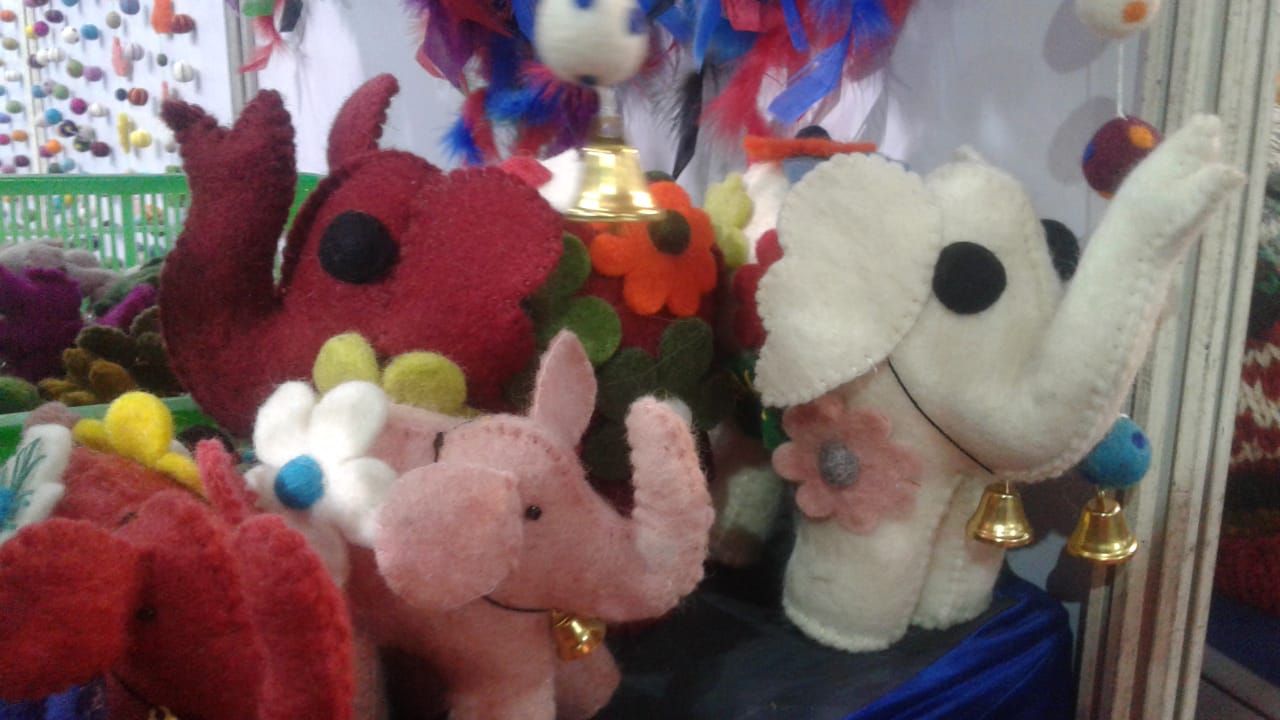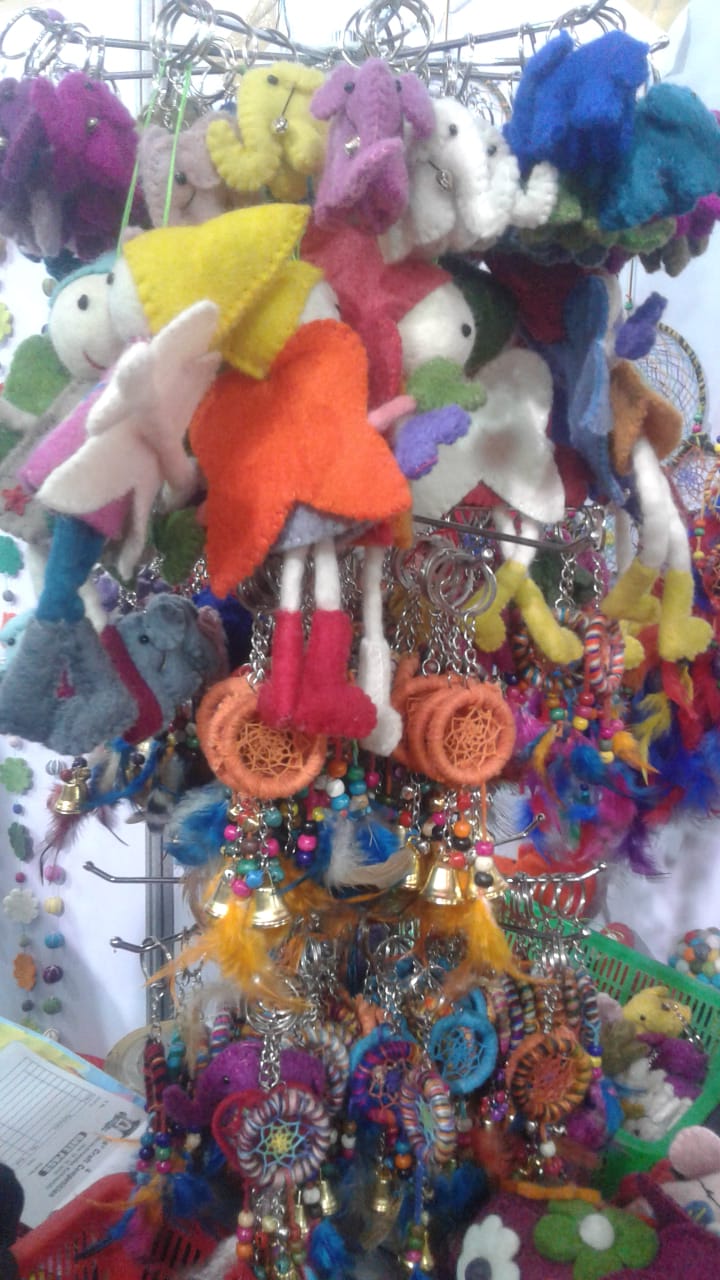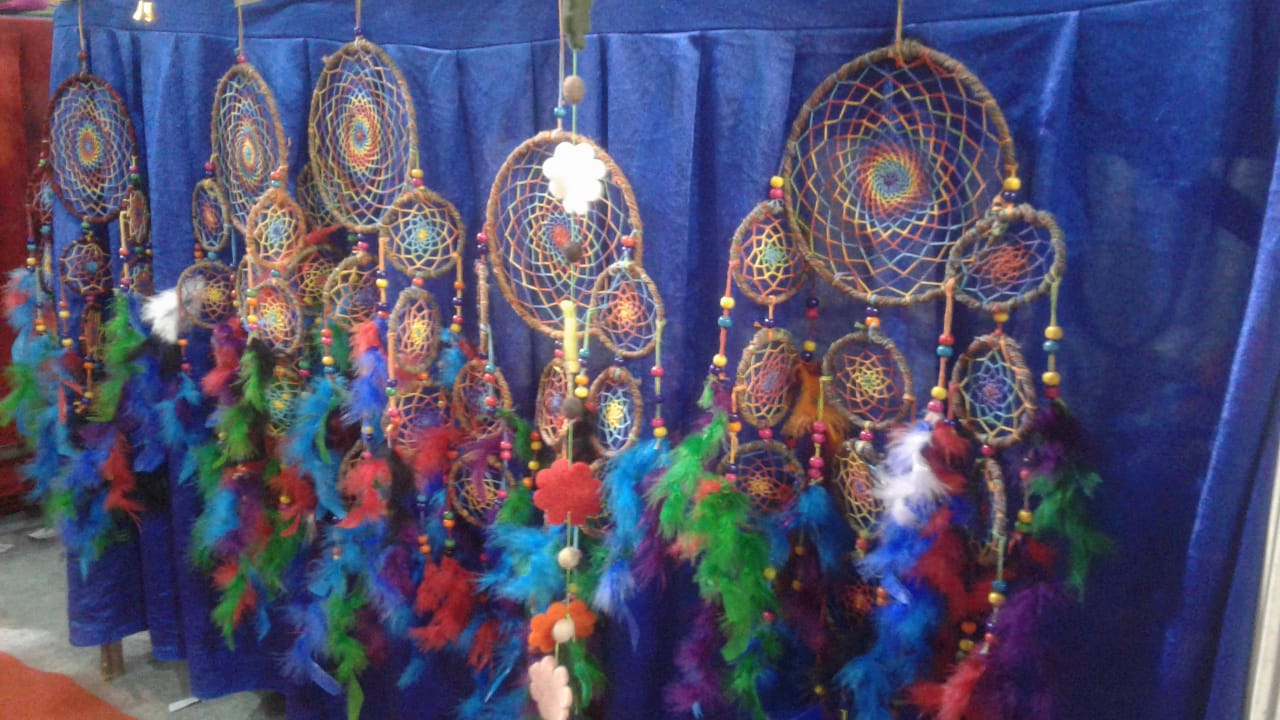SOCIAL ENTREPRENEURSHIP BLOG SERIES ISSUE NO. 18:BNN FELT HANDICRAFT: BECAUSE BUSINESS IS NOT ONLY ABOUT EARNING PROFIT
Goma Lama, 38, never thought she would become a businesswoman and create employment or 70 plus people. She came from a family that would have let her spend life without doing anything. But she always had the passion for handicrafts and after working in handicraft company named Friend Handicraft for 7 years, she now has her own business that produces Nepali handicraft goods and sells them at the American and European markets. We wanted to learn more about what made her pursue this journey and what advice she has to give after years of success at BNN Felt Handicraft located near Machhapokhari, Balaju.
How hard it was to run your business at the beginning?
It was very difficult to pass the first phase like every business. I got my chance, but there were many people who wanted me to fail or stop my business. However, I this never crossed my mind, because I wanted to prove myself. At the early stage of a business, you might not get the reward that you based on your hard work and dedication expect. I was prepared for that, so it didn’t hamper me much. However, the doubt whether I would make it or not was always there. One thing that everyone should be prepared for is that ups and down may come, but we need to be strong and face every challenge that comes our way.
Why social entrepreneurship? Why not earning only for yourself?
I think that the fact that Nepal is considered a developing country says it all. Women’s development is far behind compared to other areas of development. Many women are still illiterate and devoid of opportunities. Not all can start something on their own. I wanted to do something for them, who have no skills but an eagerness to learn.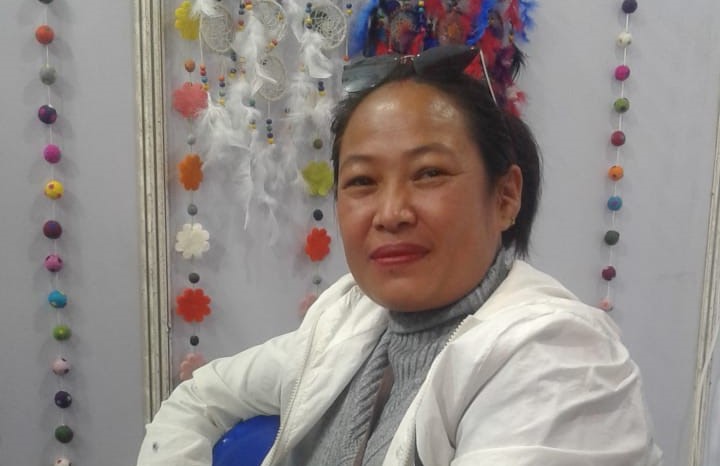
This work that we are doing right now can be done by anyone, who has the dedication to learn. They don’t need an academic degree. I wanted to encourage them providing them with opportunities and tell them that they should not wait for their husband to do everything for them. I also give them training and also link them to other opportunities, so that they can explore different horizons. I feel that this is needed, because I have also worked for 7 years.
How many of you are working together? How do you think your effort is creating a social impact?
We are 70 women working with us to date. I want more to come and join me. There are many companies who now trust me and want to work with me. I am optimistic. Many of the women who work with me are the ones who are devoid of opportunities. They now have the courage to trust in their skills. Some of them are in the process to start their own business. That gives me great satisfaction. I also enable them to work from home and earn. With a little earning, they now look at their expenses differently. Their confidence has increased, because they don’t have to ask for money from their husband.
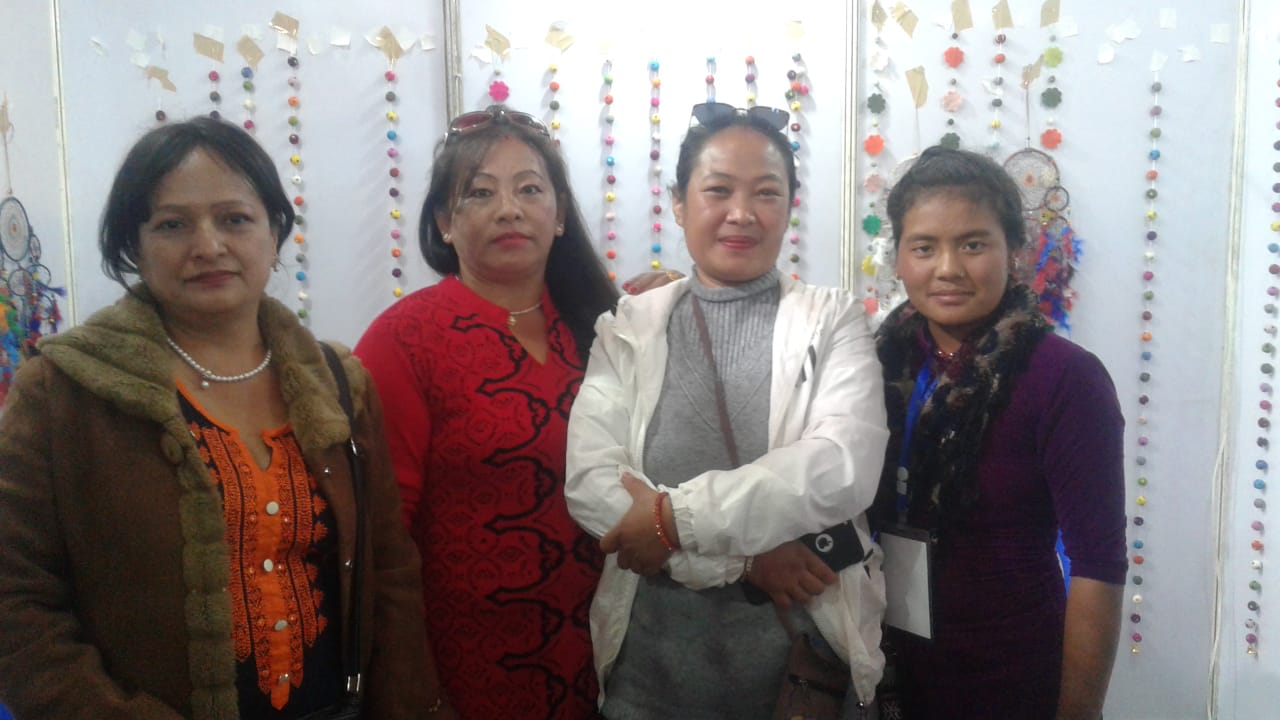
How is your business doing?
It is satisfactory. We have an annual turnover of 25-30 lakhs. Our main market is abroad. We export goods to Japan, America, and European countries. They can afford our goods. We focus on colorful, attractive products like bags, purses, shoes, dolls, decoration goods, etc. Everything that we can think of can be made by hands. We take the raw materials to inform the businessmen who import the material from abroad. In the last couple of years, we have sold goods from Nepal to all the major exports which is an important achievement for us. While Nepal is not our major market, people still need to know that we exist. This opens the possibility for us to produce things for the Nepali market as well. We often buy expensive goods for children from abroad, but we should buy more from Nepal. Hence, for the Nepali market, we have a stall at Chhaya Centre Thamel. Apart from that we also attend several festivals that are happening throughout the year.
How do you see the business environment in Nepal? What do you think of the existing government support to entrepreneurs?
Business fair, because they do not organize themselves properly from the beginning. And there is no security, in case we fail in what we do. The government should do something to encourage the new aspiring female entrepreneurs, so that we can make products for the Nepali market. The Nepal government should be welcoming in supporting, problem-solving, financing and giving subsidized loans at an appropriate rate. By keeping the large portion of women confined to their house, the country cannot reach prosperity.
Lastly, what you want to say to young female entrepreneurs?
What I want to say is don’t be confined to your house. You should go out. It might be difficult, but you should try for your future generation. I dream about the stage where no women are unemployed. We should come out of the kitchen and leave our washing machines. I also want to tell men to be that person that your successful wife would be proud of. Be their support system, like my husband did for me. Together with we can make this change. I want other husbands to be proud of their successful wives.
